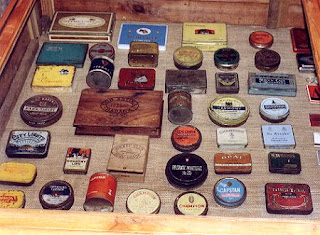
Freda Witherspoon marched up to the counter to buy cigarettes at a Kwik Stop store here, and bypassed the big-name tobacco brands.
"Give me two packs of DTC," said the 53-year-old Ms. Witherspoon. The price: just $4 a pack.
Little known outside Florida, DTC, which stands for Dosal Tobacco Corp., has become a major player in the Sunshine State, selling nearly as many smokes statewide as Reynolds American Inc., the second-largest U.S. tobacco maker by revenue.
"They're cheap, and they have a good taste," said Ms. Witherspoon, who has smoked DTCs for 15 years.
Big tobacco makers, however, hope to stub out the Miami-based cigarette maker's growth. Reynolds, Altria Group Inc. and other industry giants are lobbying the Florida Legislature to close what they say is a loophole that allows Dosal to sell its cigarettes at cut-rate prices.
In the session that began last week, state lawmakers are expected to consider several bills that would impose fees of about 50 cents a pack on Dosal and other smaller producers.
Dosal has survived similar campaigns before, but this time its larger rivals are turning up the heat at a time when Florida, which faces a $3.6 billion budget deficit, is under pressure to find new funds.
The big tobacco makers' beef against Dosal is rooted in a 1997 settlement they signed with Florida, which sued them to recoup the money its Medicaid program spent on treating sick smokers. Under the settlement, Altria, Reynolds, Lorillard Inc. and other major companies agreed to make payments to the state that have totaled more than $300 million a year.
Dosal was the only small tobacco producer sued by the state, partly because Florida accounted for the bulk of its sales. But it was ultimately dropped from the lawsuit because its market share at the time was tiny—less than 2%.
As a result, Dosal and other small producers aren't required to pay settlement-related fees to Florida, which pursued its own litigation, rather than joining the so-called 1998 master settlement the major tobacco companies reached with 46 other states.
Exempting Dosal and about 30 other small players from the settlement fees has tilted the playing field, giving them a cost advantage of about 40 to 50 cents a pack, according to Altria and Reynolds.
That's at least partly why Dosal is roughly tied for sales with Reynolds, the No. 2 player in Florida behind Altria's Philip Morris USA unit. The industry's largest players dominate the market in most states, making Dosal, whose Florida market share was 18% in the second half of last year, an unusual case.
"Essentially, they are taking advantage of a loophole to get these huge market shares," said Frank Lester, a spokesman for Reynolds, maker of Camel and Pall Mall.
Lawyers for Dosal argue that imposing a fee on the company would be unfair. Dosal, they say, wasn't involved in the alleged industry practices, such as manipulating the nicotine content of cigarettes, that triggered the wave of lawsuits against major tobacco makers in the 1990s.
Dosal's chief executive, Yolanda Nader, said the company's value pricing has helped fuel its robust growth. Cigarette prices in Florida range from about $4 a pack for Dosal and other bargain brands to about $6 a pack for
Philip Morris's Marlboros.
It doesn't hurt that Dosal, which is housed in a former boat factory, has deep roots here. It was founded in 1962 by an eponymous cigarette-making family that left Cuba after the revolution, and has been controlled since 1992 by Margarita Dosal. The company's 305's, it's top-selling brand, was named for a Miami area code.
But the real key to the company's success, according to Ms. Nader, is the "greedy" larger tobacco companies, which have raised prices sharply over the years, especially after cigarette-tax increases. "They've done more to help us than what we have done," she said.





















